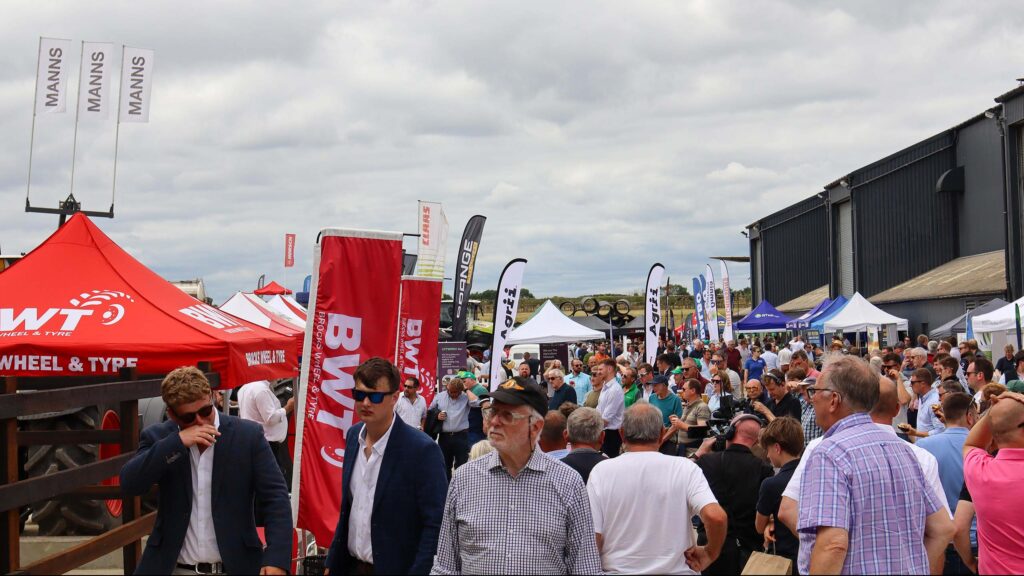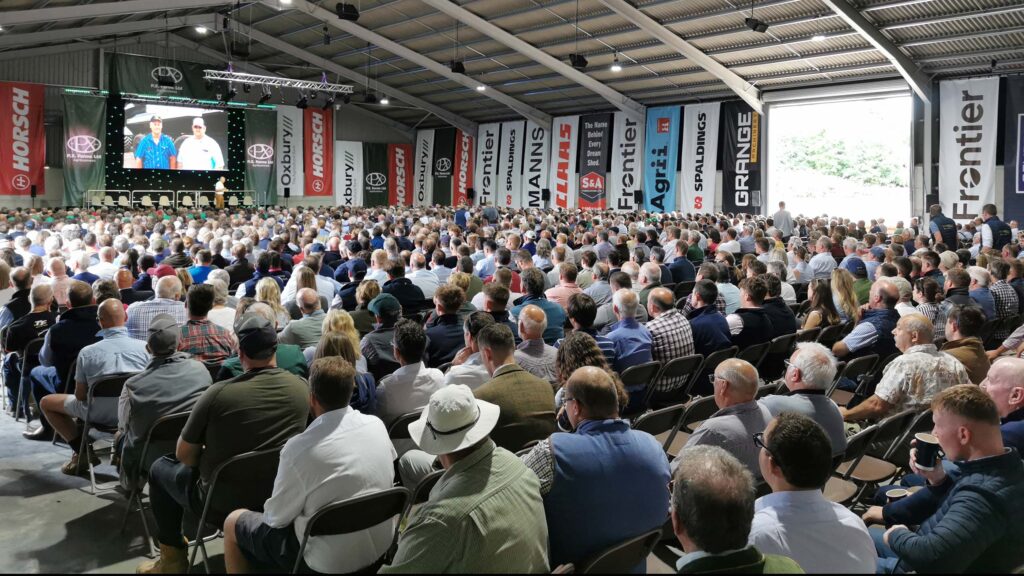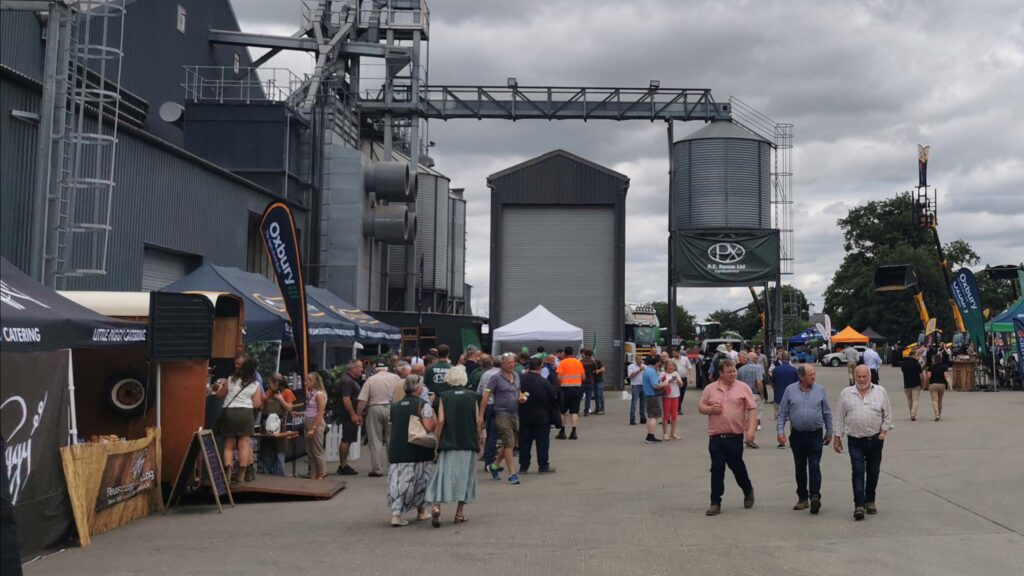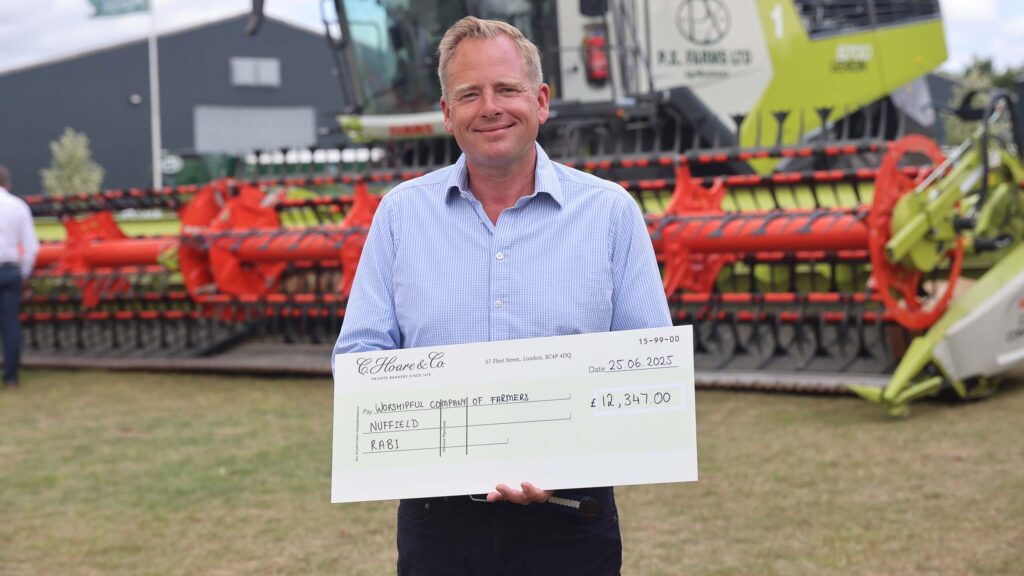Thousands attend PX Farms’ arable farming showcase
 © Brocks Wheel & Tyre
© Brocks Wheel & Tyre PX Farms, one of Cambridgeshire’s biggest and most forward-thinking arable farming operations, opened its gates on Wednesday for a large-scale open day that drew thousands of visitors from across the agricultural sector.
Run by arable farmer, Nuffield scholar and popular YouTuber James Peck, PX Farms offered an unprecedented look behind the scenes at Scotland Farm, Dry Drayton, near Cambridge. In total, PX Farms has more than 5,000ha farmed in Cambridgeshire, Lincolnshire and Bedfordshire.
See also: Arable Insights farmers weigh up a future without subsidy
The event featured a packed schedule of demonstrations, technical showcases, and industry talks – designed to highlight how large-scale, modern farming can thrive in a future without traditional government support.
About 3,000 farmers and non-farming enthusiasts attended, each paying £20 entry, which included lunch, with proceeds going to charity.
A highlight was the panel session “Farming without government support”, chaired by BBC Countryfile presenter and journalist Tom Heap.

A large audience heard Horsch founder Michael Horsch © MAG/Philip Case
Expert panel
The session brought together an expert lineup, including Mr Peck; NFU deputy president David Exwood; James Maw, managing director of Viterra; Chris Tye, commercial director at Agrii; Diana Overton, managing director of Frontier Agriculture; and Jeremy Moody, secretary and adviser to the Central Association of Agricultural Valuers.
Panel discussions explored how to boost cereal production while improving efficiency and addressing climate change, soil health, and the use of technology such as gene-edited crops to equip farmers with the tools for more profitable and sustainable farming.
Mr Exwood said that despite the numerous challenges facing farming, including the loss of direct support, the outlook remained positive for the industry.
He suggested farmers should consider their long-term strategy, including diversification to add value or using schemes such as Defra’s Sustainable Farming Incentive as a tool. “If you’re on grade 3 or 4 land, you can take the poorest areas out of production and sell environmental services to the government,” he said.

© MAG/Philip Case
Ms Overton said UK wheat yields had stalled, but 16t/ha was possible with better knowledge sharing. Mr Tye backed gene editing as a way to boost yields, reduce carbon footprint and tackle disease pressures, although Mr Peck questioned who truly benefited, suggesting the main limitation might be the farmer.
Although his focus is on increasing productivity, Mr Peck said his goal was to leave the farm in a better place for future generations. “Personally, I think any capital grants that do come out should go wholly into things like planting hedges and trees, not into 6m strips that five years later get ploughed out. I think it’s a nonsense,” he stated.
The event also featured industry experts and guest speakers, including Horsch founder Michael Horsch; David Cox from Waterhatch Farms, a mixed farming enterprise in Esperance, Western Australia; and Nick Evans, managing director and co-founder of Oxbury Bank.
Mr Evans displayed a graph which showed that 18% of farms in England produce 80% of the country’s agricultural output from less than 60% of the land, meaning a significant portion of farms contribute a relatively small amount to overall production.
“The direction of travel is scale, so for those of you who are not thinking about scale, you should be,” he said.
Attendees were treated to a curated schedule of live demos, including an explanation of tyre width and pressures to minimise soil compaction, by Brocks Wheel and Tyre; land drainage with William Morfoot; robotic tractors with Agxeed; and a display of cutting-edge Horsch machinery.

James Peck with the cheque for farm charities © Pause Productions
Charity fundraiser
The event raised £12,347 to be split equally between three agricultural charities: Nuffield Farming, the Royal Agricultural Benevolent Institution (Rabi) and the Worshipful Company of Farmers.
Speaking to the Farmers Weekly podcast, Mr Peck explained why he decided to host the open day. “I wanted to make sure there was positivity in agriculture. I feel strongly about the fact this is such a great industry and want people to love and enjoy it and all get together and look for ways to succeed,” he said.
“It feels like we’re under attack as an industry, and we’ve got to find a way of making this profitable and moving forward. We need to put our heads together, and that was sort of the concept.”
Mr Peck also praised Jeremy Clarkson for raising awareness of farming through Clarkson’s Farm, saying it reached non-farmers, showed the industry’s unpredictability and excitement, and highlighted its often-overlooked humour.
